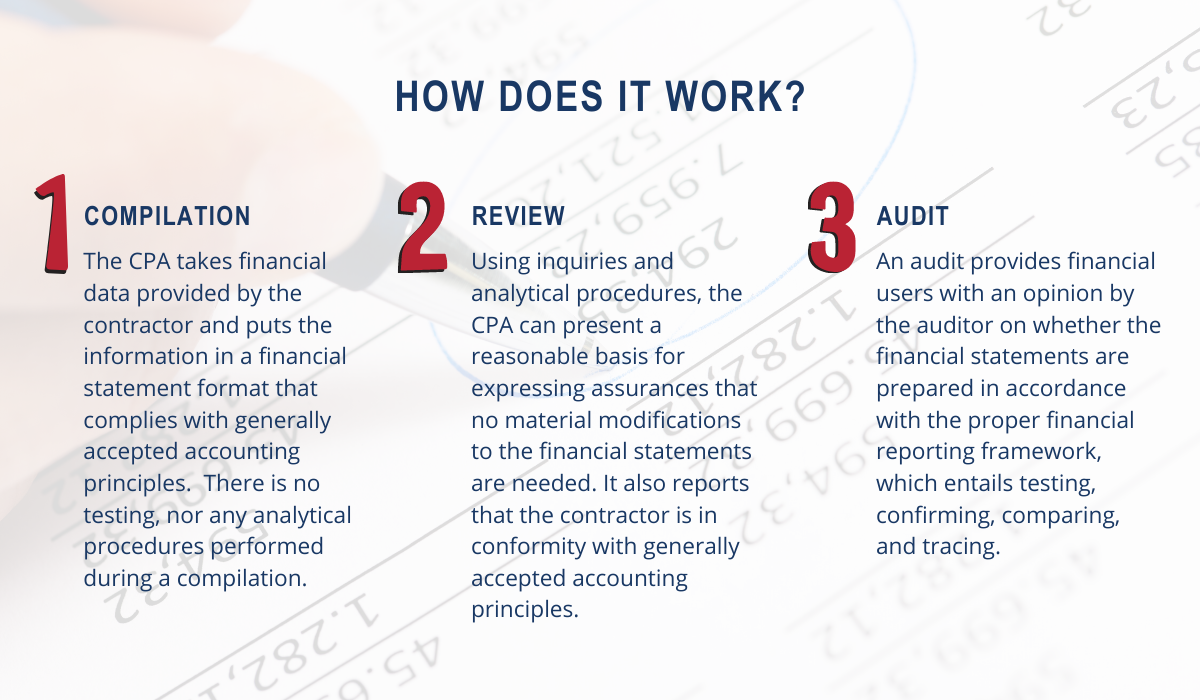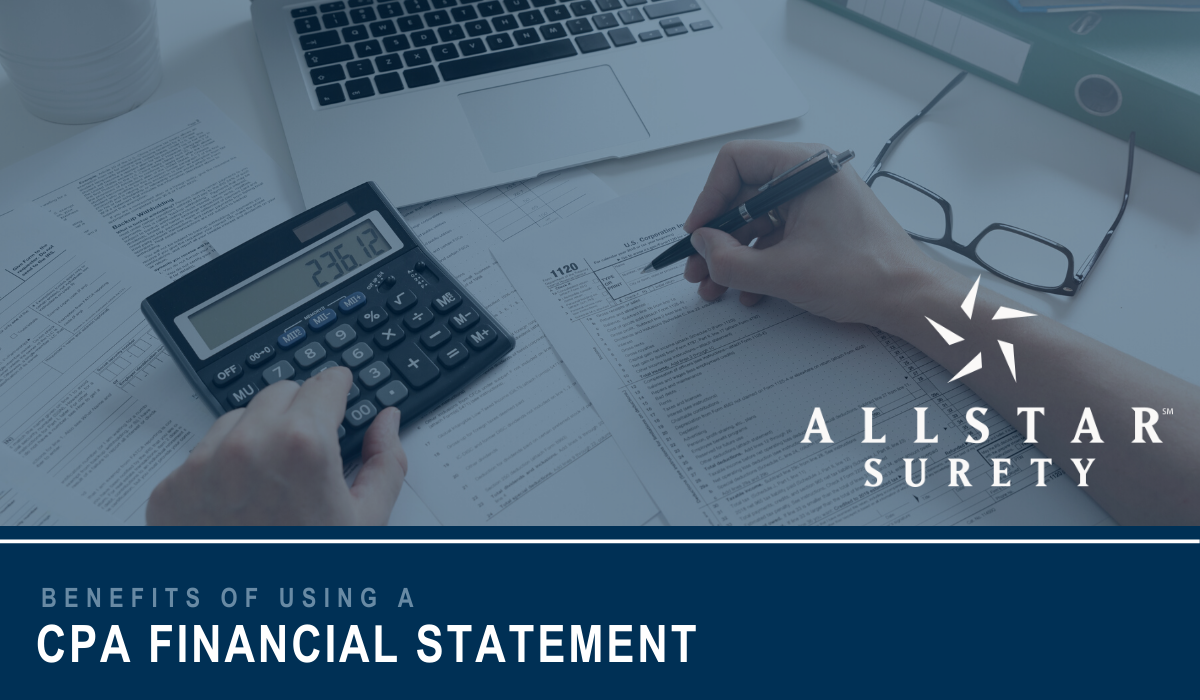Timely CPA financial statements - a win-win for everyone
While monitoring internal information from their contractors throughout the year, at year-end (usually December 31), a bonding company will require a statement from an outside source, a Certified Public Accountant.
This protects both the construction client and the bonding company and can help contractors to solidify and grow their business.
Why require the CPA financial statement?
- For contractors looking to grow their business, a financial statement provides users with the information necessary to make economic decisions.
- Sureties use these statements to make assessments about the contractor’s potential and future risks, while providing a basis for setting capacity limits and determining premiums.
- A surety company has proven documentation that the information has been prepared by an independent financial source that has a background in working on contractor financial statements, and that the information is accurate

What Important Financial Information is Derived from a Financial Statement?
- Working capital – current assets less current liabilities
- Debt to equity – measure of the contractor’s financial leverage
- Coverage ratios – measure of a contractor’s ability to meet its obligations
- Contract/revenue backlog – amount and quality of the contractor’s uncompleted work
Why is Important to Hire a Construction-Oriented CPA?
- A construction-oriented certified public accountant (CPA) is knowledgeable of current accounting and tax matters having to do with a contractor and provides financial, tax and management advice.
- For small contractors, surety bonding will grow to become an integral part of their business as well as their ability to obtain bonding credit. Acquiring surety credit is greatly improved by acquiring properly prepared financial statements and by making sound business decisions with the advice of a construction-oriented CPA.
- Generally, a good construction-oriented CPA knows the sureties and other financial institutions, which are favorable to contractors. This knowledge adds another level of credibility to the contractor’s table, which could turn into more surety and/or bank credit.

